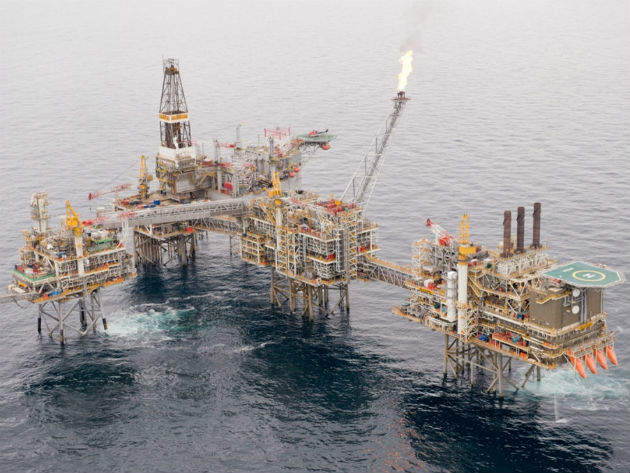
 Pic Courtesy:Patrik M. Loef
Pic Courtesy:Patrik M. Loef
A group of Scottish firms led by government investment and trade promotion agency Scottish Development International (SDI) set out for Myanmar in June to explore the opportunities the country’s burgeoning oil and gas sector presents, and to discuss how they could use their significant experience in the North Sea to help develop it over the coming decades.
Having recently opened up to international trade and investment, Myanmar’s newly appointed government, headed by the long-time opposition party the National League for Democracy (NLD), is keen to develop its own oil and gas industry using foreign investment and technology to build local expertise. And with its 50 years of experience operating in conditions similar to those found in Myanmar, as well as its strong historic connections to the country, Scotland – in theory – couldn’t be better placed to assist.
Of course, building relationships in any new market, let alone one that has only recently opened its doors to foreign investment following decades of military rule, requires both strong relationship building skills and plenty of patience. But with Myanmar’s industry in an incredibly exciting phase of its development, much like Aberdeen was in the 1970s, it’s time and effort the Scottish industry is more than willing to put in.
Elly Earls spoke to SDI’s managing director Paul Lewis to find out more about the scale of undeveloped resources in Myanmar and just how Scottish oil and gas companies plan to tap into them.
Elly Earls: What prompted you to send a delegation of Scottish energy companies to Myanmar?
Paul Lewis: As we build the network of companies we work with in South East Asia we are increasingly being asked by Scottish companies about developing new markets in the region. Our regional office team in Singapore had visited the Myanmar market as a result of a delegation from Myanmar visiting Offshore Europe in Aberdeen in September 2015 and requested that we send the team over to look at the opportunities. We decided to look at scoping the opportunity and we spoke with companies who were already engaged with the market and put a joint visit together with our CEO and ASCO, Wood Group and Bibby Offshore.
EE: How big is the potential for the offshore oil and gas industry in the country?
PL: Proven reserves of 3.2bn barrels of oil and 18trn cubic feet of natural gas. Unproven reserves could be significant.
EE: Tell me a bit about the process of building relationships in an emerging oil and gas market – what typical challenges are involved?
PL: When the markets are being managed by [government-run] national oil companies (NOCs) it can be challenging to break into the local supply chain if you don’t have local partner. In many South East Asia countries it is mandatory to have these partnerships in place to work with an NOC. SDI has field teams across the world which have brokered many intros to NOCs in-market to help move the process forward.
EE: In Myanmar specifically, have you faced any of these challenges and if so, how are you working to overcome them?
PL: With the opening up of the market we have been focussing on building relationship with Myanmar Oil & Gas Enterprise (MOGE), the government run NOC. We have managed to engage with them at a senior level and had meetings with them along with the companies on the delegation. Having a government-related body such as SDI travelling with industry helped open doors in Myanmar.
EE: Myanmar is keen to develop its local industry with help from foreign players. What experience would Scotland bring to the table?
PL: Scotland’s 50 years of experience in the North Sea and in global markets across all aspects of the oil and gas sector means we have tried-and-tested expertise which gives us a clear advantage when entering new markets and helping countries develop their industry working with technology partners and contractors. The development and management of supply base type projects is an area that Scotland has expertise in and we have an existing group of companies in the supply chain to develop such projects.
EE: Similarly, how would the Scottish industry benefit from such collaboration?
PL: The benefit to Scottish industry would be getting access to these projects at the initial stages and therefore developing relationships with the NOC and all the operators and contractors who are establishing their presence in the market. The reputation of Scottish companies in the region has been established previously and the work ethic has been recognised and trusted over many years. Scottish-owned Burma Oil Company (BOC) was the first foreign company to drill in Myanmar.
EE: What are the next steps following the original delegation?
PL: We are in discussion with the delegation on how best to support them with their proposals and we are developing a Scottish company capability database of who could provide solutions in a collaborative way going forward.
EE: How soon would you hope companies to be able to set up firm agreements with Myanmar to work together?
PL: To support our future activity we plan to take a learning journey-type delegation to British Energy Week in October to highlight the opportunity and learn in more detail what is required.
EE: Once operating in Myanmar, what would be companies’ first steps to kick start the industry’s development?
PL: Building relationships is very important and working with local industry where possible. Also, setting up local training initiatives should be a priority. With approximately $30-40bn of investment required over the next 15 to 20 years the companies have to be committed to developing a long-term strategy.



